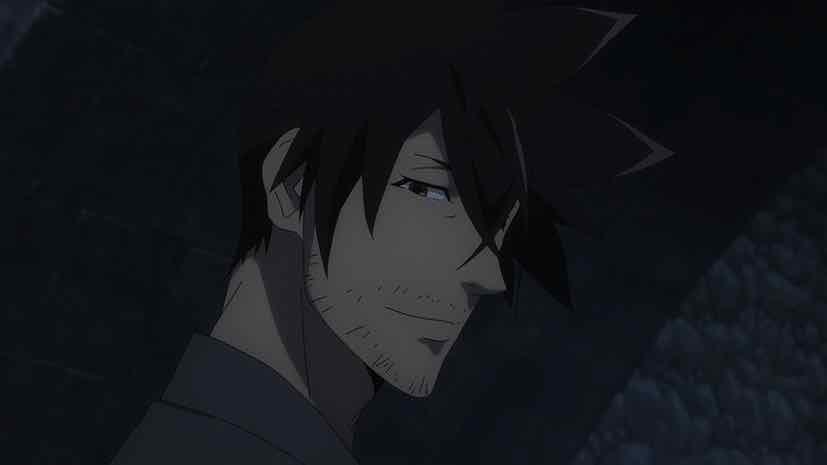Revenger Anime Review

Here are a couple of things I’ve learned after nearly 12 years of writing about anime:
- There are times when I simply won’t agree with the general opinion, and there’s nothing I can do about it.
- Often, my favorite works are among the least popular of the well-known writers, studios, or series.
Urobuchi Gen might not have the same influence on the anime industry as before, but he has written some extremely powerful and influential works. Recently, he seems most engaged when working on projects that are different from typical anime, such as Chinese puppet series or homages to old jidaigeki dramas like Hissatsu Shigotonin. And engagement is everything with Urobutcher, who tends to lose interest in his series before they are finished.
However, he didn’t lose interest in Revenger – at least not in my opinion. The advantage of original anime in the hands of a good writer is that they can craft a story without the constraints of anime tropes. Urobuchi wrote the entire series with a clear understanding of how it would start, progress, and end. The end product was as much a slightly stylized live-action drama as it was an anime, and it worked splendidly for me, especially with Futamata Jun’s gorgeous soundtrack.
Revenger reminds me of Mars Red not because of the material itself, but because of the reception. Both series take a non-traditional approach to anime, yet they were met with widespread indifference. However, my esteem for both of them far exceeds their popularity and widespread opinion. While Mars Red may be the better of the two, Revenger is also awfully, awfully good – and it remained true to itself and its creator until the end.
Speaking of the end, I wouldn’t have been surprised if it had been a dark “everybody dies” ending. Raizou, the protagonist, has been searching for a place to die throughout the entire series. It would have been a greater penance for him to continue living, as reflected in his indifference towards creating any art that didn’t express his anguish and guilt. As for the other characters, their fate was uncertain. Raizou wasn’t the only one prepared to die on the day of the final confrontation, but ultimately, he didn’t. This ending can be seen as a reprieve for Yuuen and the others, rather than a pardon.
By the end, it became clear that Sute would be the instrument of Raizou’s demise, although I had expected it to happen on a different night. Sute’s disappearance from the screen hinted that his role was not yet finished. Meanwhile, Yuuen and Nio went to deal with another part of Liu’s revenge, while the remaining characters confronted Sada and his team on an island. Both settings were gripping in their own way, but the outcome was more certain with Yuuen and Nio.
The most revealing moment for me was when Nio showed compassion for Shishido’s tiger, which was the first sign of empathy we’ve seen from him. This scene stripped away any artifice and revealed the Reben-ji (the group of characters) for who they truly were. It was mass-produced slaughter, the logical outcome of their actions. There was no room for pretending that those people, mere hired hands, deserved their fate any more than the tiger did. Shishido is undeniably evil, but the Reben-ji have chosen a bleak path. Despite this, it is bleakly hopeful that even Nio, the youngest and most cold-hearted among them, is capable of feeling empathy towards something.
On the island, the Reben-ji proved to be better than Sada’s men. Perhaps it was because they were fighting for a cause, something more than just money. Sada, on the other hand, was detached and craven, only concerned with getting paid. The strength Raizou found to complete his tasks came from his unwillingness to let the world face the consequences of his failure and his lack of ambition to survive. He had more to gain and less to lose than Sada, and that ultimately made the difference.
The Reben-ji continue their journey, still in the service of Kanou. However, they break their oath and leave Taishin in Raizou’s place. It’s interesting that Raizou met his end where his part in the story truly began, under that bridge. It makes me wonder if he went there with the intention to die. Maybe he would never have found the strength to end his life as a samurai, thinking himself undeserving. We’ll never know, thanks to Sute.
This was a fascinating and sad tale from start to end. There might not have been much difference between the Reben-ji and Sada’s group, apart from their self-perception. However, there existed a bond between these complicated men and even Nio. They lived in a complicated world where morality was opaque, and Urobuchi’s obsession with consequentialism was put to the test. Revenger avoided histrionics and anime clichés, telling its story in its own way and at its own pace. In an era where original anime rarely lives up to the name, Revenger was a breath of fresh air and a welcome outlier.





